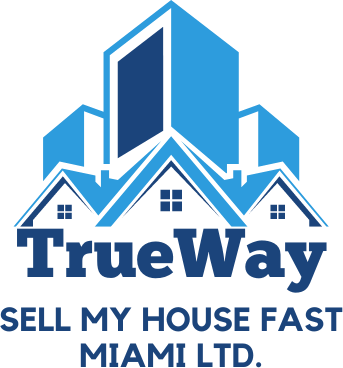In the domain of real estate, selling a property necessitates strategic decision-making, where the route chosen can greatly influence the final financial outcome. The alternatives range from employing real estate agents who bring their market knowledge and negotiation skills, to adopting the For-Sale-By-Owner approach for greater control. There’s also the swift, yet potentially risky, option of auctions, or the direct, rapid method of home buying companies. Each option carries its unique advantages and challenges, which could be more or less suited to your personal circumstance. To optimize the sale of your house, a thorough understanding of each avenue is paramount.
Understanding the Real Estate Market
Delving into the intricacies of the real estate market, it’s important to recognize its dynamic and cyclical nature. Understanding the factors that affect the market, including economic trends, interest rates, and regional development, is essential to making informed decisions about when and how to sell a house.
A thorough market analysis is a cornerstone of this understanding. It’s not merely about comparing prices of similar properties; it’s about identifying trends and predicting future changes. Market analysis provides invaluable insights into buyers’ behavior, helping sellers align their expectations and strategies with the realities of the market.
Pricing strategies are vital in this equation. The price should not only reflect the property’s value but also take into account market conditions and buyer psychology. Overpricing might lead to a prolonged selling period or even deter potential buyers, while underpricing might result in a quick sale but at the expense of profit. A well-thought-out pricing strategy can increase the chances of a successful sale and maximize profit.
To navigate the complex real estate market, sellers need to be armed with knowledge and strategic insights. Understanding the market and implementing effective pricing strategies are key steps towards achieving a successful sale.

Selling Through a Real Estate Agent
Engaging a real estate agent to sell a property is often a wise decision, especially for those unfamiliar with the complexities of the housing market. Experienced real estate agents offer invaluable services, utilizing their in-depth knowledge of local market trends to secure the best possible price. They provide expert guidance from the initial listing through to the final closing, ensuring a smooth, efficient process.
One of the significant benefits of using a real estate agent is their proven marketing strategies. Agents know how to highlight a property’s unique features, use high-quality photographs, and list your property on prominent real estate websites to attract more potential buyers.
While commission fees may seem challenging, consider the value a real estate agent brings. Their negotiation tactics can potentially increase your sale price, more than covering their commission. This expertise is particularly beneficial in a volatile market, where prices can fluctuate dramatically.
The For-Sale-By-Owner Route
Exploring an alternative to traditional real estate methods, we turn our attention to the For-Sale-By-Owner (FSBO) route. This approach, while not without its challenges, offers homeowners the potential for increased profits and control over the selling process. In the following discussion, we will thoroughly address the FSBO process, the advantages it may confer, and the risks involved to make sure you make an informed decision.
Understanding FSBO Process
For homeowners considering the task of selling their property independently, understanding the For-Sale-By-Owner (FSBO) process is crucial. This DIY approach to home selling requires a significant commitment of time, resources, and effort. It includes tasks like setting a competitive asking price, preparing the home for sale, listing the property, conducting showings, negotiating with potential buyers, and handling the necessary paperwork.
Employing effective marketing strategies is a significant component of the FSBO process. This includes utilizing online listings, social media platforms, and traditional methods such as yard signs and open houses. High-quality photos and compelling descriptions of the property are essential tools to attract potential buyers. It’s also beneficial to understand local market trends and conditions, as this knowledge can aid in setting a competitive price and identifying the right buyer.
The FSBO route is not for everyone. It requires a certain level of real estate knowledge, marketing skills, and the willingness to dedicate significant time to the process. However, for those willing to take on the challenge, it can provide control over the sale process, potential cost savings, and the satisfaction of managing a successful home sale independently.
Advantages and Risks
Why would anyone consider opting for the For-Sale-By-Owner (FSBO) route? The answer lies in the potential benefits and the willingness to accept certain risks.
One of the primary advantages of FSBO is financial. By cutting out the real estate agent’s commission, sellers can potentially save thousands of dollars. This benefit often appeals to those who have the time and inclination to take on the responsibilities traditionally handled by a real estate agent.
However, the FSBO route also presents significant risks. These include the possibility of setting an inaccurate price, legal complications, and the challenge of negotiating directly with buyers. A mispriced home could linger on the market, causing potential buyers to question its value. Legal issues, such as non-disclosure of material facts, can result in costly lawsuits. Direct negotiations require a level of expertise that many homeowners lack, potentially leading to a lower sale price or unfavorable terms.
While the benefits of FSBO can be appealing, it’s crucial to weigh them against the potential drawbacks. A well-informed decision requires a thorough understanding of both the advantages and risks involved in the FSBO route.
Utilizing Online Property Platforms
The digital landscape offers a variety of online property platforms that can be utilized to enhance the visibility and appeal of your property. These platforms, with their extensive user base and innovative marketing tools, can greatly enhance the sales potential of your house. Therefore, it is important to understand how to effectively utilize these platforms to guarantee a successful and profitable sale.
Exploring Digital Real Estate
Exploring the digital real estate terrain, particularly on online property platforms, can greatly enhance your house selling prospects. This digital landscape offers an extensive range of tools and techniques that can notably elevate the visibility of your property among potential buyers.
Implemented effectively, digital marketing can cast a wider net to attract prospective buyers. This incorporates strategies like search engine optimization (SEO), social media marketing, targeted email campaigns, and content marketing that help your property listing reach a broader, more targeted audience. These digital marketing techniques not only increase your property’s online exposure but also position your house as a desirable purchase in the minds of potential buyers.
Online property platforms also offer the advantage of virtual tours, a powerful feature that gives buyers an immersive, 360-degree view of your property, right from the comfort of their own homes. This not only saves time for both parties but also allows potential buyers to visualize themselves in the property, increasing the likelihood of a sale.
Maximizing Online Sales Potential
To optimize your online sales potential, it is essential to efficiently utilize online property platforms. These platforms not only provide a broader audience reach, but they also offer tools that can enhance the desirability of your property, like virtual tours. Virtual tours allow potential buyers to have an in-depth view of your property, right from the comfort of their homes. They can explore every nook of the house, which can spark interest and provoke questions.
Furthermore, social media marketing is another potent tool to contemplate. With the vast number of users on platforms such as Facebook, Instagram, and LinkedIn, promoting your property on these platforms can greatly boost your visibility. It’s also an effective way to engage with potential buyers, address their inquiries in real-time, and build a relationship that could lead to a sale.
Auctioning Your House
Delving into the world of property auctions, one finds it to be an appealing alternative for selling a house swiftly and efficiently. Auctions provide a platform where market demand and competitive bidding converge, often resulting in a quick sale. One of the key auction benefits is the transparent nature of the process, which offers a fair and open environment for both buyers and sellers.
Auctions can reduce the time a property spends on the market, thus minimizing carrying costs such as mortgage, insurance, and maintenance expenses. This is particularly beneficial in a sluggish market where properties may linger in listings for months. The intensive marketing strategy coupled with a specified auction date creates a sense of urgency among potential buyers, driving up the price.
Moreover, the competitive atmosphere of an auction encourages potential buyers to outbid one another, potentially resulting in a higher final selling price. In addition, the seller retains control over the reserve price, ensuring the property won’t be sold below a predetermined minimum bid. Exploring auctioning your house can be a viable route to consider when seeking a timely and profitable sale.
Partnering With Home Buying Companies
Exploring the labyrinth of property sales, a potentially advantageous option for homeowners is partnering with home buying companies. These companies offer a direct sale route that expedites the process, circumventing the traditional real estate market’s time-consuming challenges. The primary allure of this option lies in the promise of a quick closing, a factor of significant consequence for those seeking to sell their property swiftly.
Home buying companies specialize in purchasing homes directly from homeowners, thereby eliminating the need for open houses, marketing, and negotiations with potential buyers. This direct sale method is particularly beneficial for homeowners who may have inherited unwanted property, are dealing with a distressed property, or are experiencing financial hardships.
Moreover, the quick closing typically associated with home buying companies is another key advantage. Unlike traditional real estate transactions, which can stretch over weeks or even months, these companies can often close a deal within a matter of days. This expedited process reduces the uncertainty and stress associated with long, drawn-out sales.
Evaluating Offers and Closing the Deal
Browsing the multitude of offers can often be the most challenging aspect of selling a property. When evaluating proposals, it’s crucial to utilize effective negotiation strategies. These can help you finalize terms that are beneficial for both parties, ensuring a smooth transaction with the buyer. It may be tempting to accept the highest bid immediately, but remember, more factors than just price need to be considered. Terms of financing, closing dates, and contingencies can markedly affect your decision.
An indispensable step in closing the deal is understanding the legal considerations involved. This includes the contract signing process, where all the agreed-upon terms are legally-binding and put in writing. It’s vital to have a clear comprehension of every clause and condition stipulated within the contract. Seek professional advice if any ambiguity arises to avoid future complications.
Tips for Staging and Marketing Your House
Mastering the art of staging and marketing your house can greatly influence its appeal to prospective buyers. Home staging is an essential strategy, it entails making your home as inviting as possible. This often includes decluttering, depersonalizing, and enhancing the home’s best features. A well-staged house can create an emotional connection with buyers, making them more likely to put in an offer.
Next, let’s discuss the power of online marketing. In today’s digital age, a considerable amount of house hunting is carried out online. Hence, investing time and effort in online marketing can notably increase your property’s visibility. High-quality photographs, detailed descriptions, and virtual tours all contribute to making your house stand out online.
Furthermore, leverage social media platforms and real estate websites to broaden your reach. Remember, the more eyes on your property, the higher the chances of selling quickly and at a favorable price.
Frequently Asked Questions
What Are the Tax Implications of Selling a House?
Selling a house can result in capital gains, which are taxable. However, tax deductions may be available for selling costs. It’s imperative to consult a tax advisor for accurate implications based on individual circumstances.
Can I Sell a House That Still Has a Mortgage on It?
Yes, you can sell a house with an existing mortgage. The selling process involves using the home sale proceeds for the mortgage payoff. However, consult with a real estate professional to navigate potential complexities.
What Is the Best Time of the Year to Sell a House?
The optimum time to sell a house generally falls in spring, driven by high buyer demand. However, a thorough market analysis and effective pricing strategy, considering seasonal trends, can facilitate successful sales at any time.
How Can I Sell My House if It Needs a Lot of Repairs?
If your house requires significant repairs, a quick sale “as is” might be ideal. It attracts cash buyers, investors, or flippers who can handle the renovations, potentially expediting the sale and reducing your repair costs.
Should I Hire a Lawyer When Selling My House?
Engaging a lawyer when selling your house can be beneficial for legal advice and contract negotiations. They guarantee the process is legally sound, protecting your interests and potentially averting costly mistakes or disputes.






